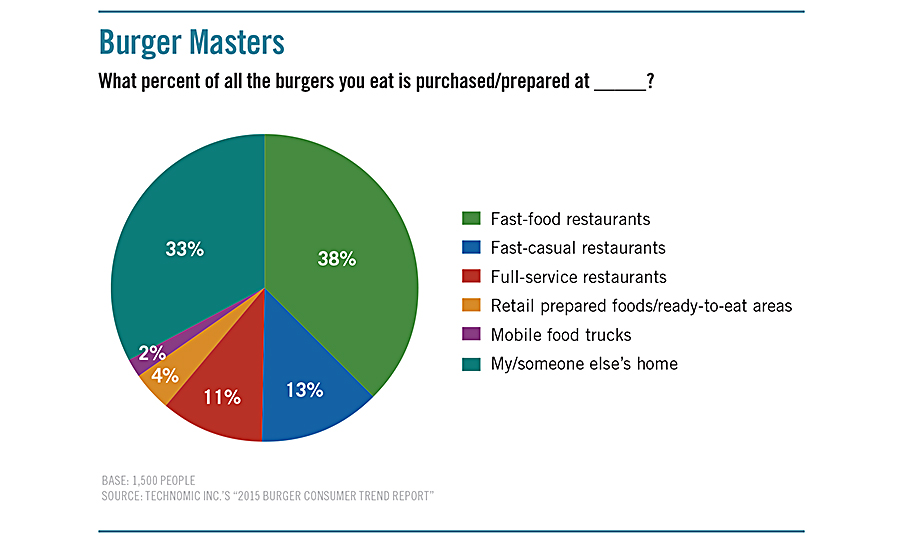Burgers are a staple in most Americans’ diets, with the majority eating burgers at least weekly, according to Technomic’s most recent “Burger Consumer Trend Report.”
However, rising beef prices and negative health perceptions of beef create challenges for foodservice. These challenges drive trends in improving transparency and menuing alternative proteins to provide value and craveability.
Burger consumption seems to have peaked a few years ago and leveled off since 2013, according to the report. Foodservice customers are feeling the effects of high beef prices and likely are looking for healthier alternatives to beef patties. As a result, restaurants are promoting vegetarian and poultry patties, as well as those made from blends of beef and other ingredients of similar textures.
Offering alternatives to beef burgers has become more mainstream, as chains like Burger King and White Castle have rolled out vegetable burgers for those with dietary restrictions or meat eaters looking for healthier options.
Full-service restaurants also continue to add vegetarian burger options to their menus; casual-dining chain BJ’s Restaurant & Brewhouse recently released the Enlightened Turkey Burger. The trend will continue and evolve, as consumers place more importance on vegan burger options than vegetarian, according to the report. Some full-service restaurants already are meeting these needs—with patties made with quinoa, chickpeas and lentils.
Alternatives, aside from vegetable burgers, can broaden the need-states burgers satisfy, from healthier options to more craveable offerings. Beef-mushroom patties can offer a degree of health and sophistication, while bacon-beef patty blends create even more indulgent burgers. These blends also use less beef—an attractive option, as beef prices are expected to get worse before improving, according to the report.
Just as beef alternatives are considered to be healthy, certain attributes of beef can help improve beef’s negative health perception. Consumers may be most interested in burgers low in sodium and cholesterol due to the association of red meat with high sodium and cholesterol levels. Conversely, patrons are the least likely to purchase low-fat burgers among all traditional health claims, according to the report.
Consumers also are increasingly more interested in transparency related to additive-free meat. According to the report, nearly half of customers would like burger meat to be natural (which implies a lack of additives) and made with lean meat. Positioning burgers as additive-free will likely draw positive attention and build trust.
Burgers are likely to remain a staple in American diets, but it will be important for foodservice providers and restaurant operators to improve offerings through transparency; and add alternative and healthful options to deliver what customers look for between the bun.
